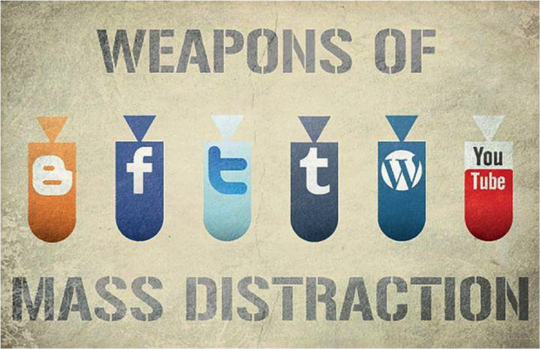Social Media Is Driving Today's Polarization and Killing Brand Reputation
Social media toxicity is nothing new. It's growing at dizzying rates. And unfortunately, you don't need to be a high-profile athlete or a celebrity or politician with millions of followers to have a toxic bullhorn - all you need is a social media account, and you can cause damage to brands through one simple function: the comments and replies.
Brands, you have fair warning. Every second of the day, individual trolls of every stripe, are doing the equivalent of walking into your brick-and-mortar retail store and shouting racist and homophobic hate speech, as well as how much they think your product sucks. Would you allow this in real life? Of course not. So why are so many brands allowing their social channels to be hijacked with vulgarities and hate speech?
The brutal truth is, on a broader scale, social media is driving societal polarization, not the other way around, and it's not only impacting brands, but society itself.
Sure, we can argue that the ills of society are obviously put on full display across social media channels and create division and polarization within social media and you wouldn't be wrong. But a peel-back of the proverbial onion makes it clear that social media is doing way more damage to society than the reverse.
Social media doesn't just have that intrinsic "amplifier" property that we're all familiar with, in which one person can tweet or post to millions of followers. No, it goes way beyond that. In fact, societal polarization continues to accelerate rapidly because social media's much-discussed "network effects" have that additional, hidden exponential multiplier effect that has a profoundly negative impact and is often ignored: the comments and replies.
It only takes a quick Google search to find loads of examples of seemingly innocuous social media posts that generated thousands of negative comments and replies. Take Applebee's, for example. After trying to tap down a social media flare-up between an employee and customer, more than 20,000 comments and replies, largely negative, were posted.
One posted comment can be seen by hundreds of people, or thousands, or tens of thousands. For brands, who spend loads of resources on their social media presences, the downside of amassing huge social followings is that millions can see a single comment. And they can reply. And they do.
Anonymity allows users to hide behind their keyboard, and these replies often ignite the trading of polar opposite opinions. It becomes open season for people to express ugly, hateful and toxic opinions in hurtful and harmful ways, all in response to single comment.
Compounding the problem, one comment spawns five replies. Those five replies inspire and embolden another fifteen comments. Those fifteen comments generate thirty replies and on it goes until a comment stream devolves into a very dark and negative side of humanity.
The issue isn't just isolated to small pockets of the online universe. One does not need to dig very deep to see that there is massively more hate and toxicity in social media than ever before. Don't take my word for it - the Pew Research Center just released some related data. Nearly two-thirds, or 64%, of Americans say social media have a mostly negative effect on the way things are going in the U.S. today.
Closer to home for brands, a recent survey by risk intelligence provider Crisp cited a full 50% of respondents are seeing an increase in content that could potentially damage brand reputation, reduce revenue, or affect operations. In addition, 38% of the respondents say they have seen offensive or derogatory content on a brand or company's social media page.
Without question, today's politics and cultural issues immediately spill into the conversations on socials, and the platforms are often the recipient of the hate that already exists. We see spikes in toxicity at key periods in time - during last Fall's Presidential Election, toxicity percentages in social comments were off the charts. Last summer, when The Black Lives Matter movement awoke a nation around George Floyd's death, we saw a similar rise in open, highly racist comments across social media. But that's very much to be expected.
What's often not expected nor explored is just how powerful the flipside is. The echo chamber of social channels is simply mind-blowing at times. Billions of people with the ability to both respond and comment to posts made by billions of people, effectively turns the volume up to a Spinal Tap-esque "11" on the issues permeating society. It fans the flames and stokes the fire, making it harder for humanity to achieve greater tolerance, acceptance, inclusion and understanding.
Until we as a society, as a nation, and as responsible technology companies, recognize the issue, assign culpability and work to solve it, we'll continue to see hate and toxicity impact our social world and our brands, but we'll also act as bystanders, watching social media make the problem much, much worse.
This guest post was written by Erik Swain, President, Respondology.


